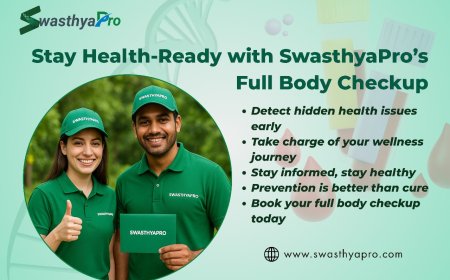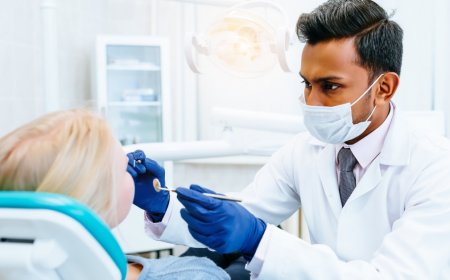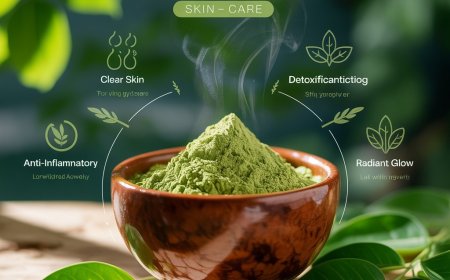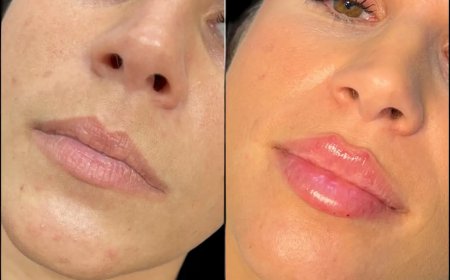Why a Cancer Screening Test Could Save Your Life: Early Detection Matters
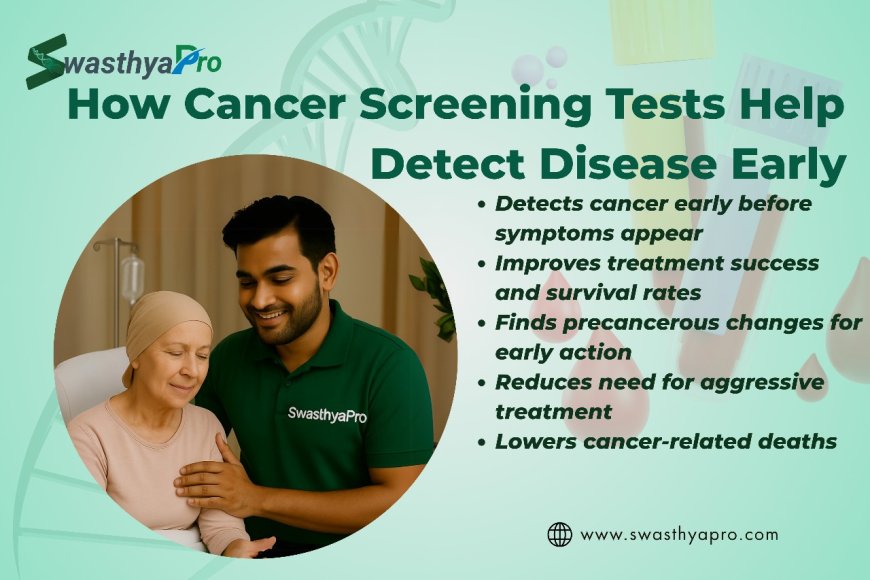
In a world where lifestyle diseases are rising rapidly, one silent killer continues to take lives before its even detected cancer. Often, symptoms dont appear until the disease has progressed. Thats where a cancer screening test comes into play. Its not just a routine health procedure it could be the life-saving checkup you never thought you needed.
What Is a Cancer Screening Test?
A cancer screening test is a medical test done to detect cancer before any symptoms appear. The primary goal is early detection identifying the disease at a stage when it's most treatable and the chances of survival are highest. These tests vary based on the type of cancer, age, gender, and personal risk factors.
Some of the most common cancer screening tests include:
-
Mammograms (for breast cancer)
-
Pap smears (for cervical cancer)
-
Colonoscopy (for colorectal cancer)
-
PSA test (for prostate cancer)
-
Low-dose CT scans (for lung cancer in high-risk individuals)
Each cancer screening test serves a specific purpose and helps reduce cancer-related deaths significantly.
Why Early Detection Matters
When cancer is found early through a cancer screening test, treatment can begin before it spreads. According to global cancer research studies, patients diagnosed at Stage I or II have much higher survival rates than those diagnosed at Stage III or IV.
Lets take breast cancer as an example. The 5-year survival rate for localized breast cancer (found early) is over 90%. But if detected late, this number drops drastically. The same logic applies to colon, cervical, lung, and prostate cancers.
Getting a cancer screening test can literally draw the line between a minor health issue and a life-threatening diagnosis.
Who Should Get a Cancer Screening Test?
Everyone is different, but general medical guidelines recommend regular cancer screening tests starting from age 40. However, if you have a family history of cancer, smoke, have unhealthy lifestyle habits, or suffer from obesity or chronic illnesses, your doctor may recommend starting much earlier.
Heres a basic guideline for when to consider a cancer screening test:
-
Women aged 40+: Regular mammograms and Pap smears
-
Men aged 50+: PSA tests for prostate cancer
-
All adults aged 45+: Colonoscopy or stool tests
-
Heavy smokers (age 5080): Annual low-dose CT scans for lung cancer
Always speak to a medical professional to determine which cancer screening test is right for you.
Busting the Myths Around Cancer Screening
Many people fear a cancer screening test will be painful, invasive, or unnecessary. But that couldnt be further from the truth.
-
Myth 1: I feel healthy, so I dont need a test.
Truth: Most cancers grow silently. You wont feel them until its too late. -
Myth 2: Screening will expose me to harmful radiation.
Truth: The radiation in most tests like mammograms is minimal and medically safe. -
Myth 3: Cancer screening tests are expensive.
Truth: Today, affordable cancer screening test packages are available at clinics, hospitals, and even home diagnostic services.
Overcoming fear and misconceptions is the first step toward taking control of your health.
How to Prepare for a Cancer Screening Test
Preparing for a cancer screening test is usually simple. Some tests require fasting, others may need you to avoid certain medications. Always follow your doctors or diagnostic labs instructions carefully. And dont delay the sooner you get screened, the better.
Where to Get a Cancer Screening Test
In India, many trusted diagnostic providers now offer cancer screening test packages tailored to age, gender, and medical history. Whether you're in a metro city or a smaller town, access has improved significantly. Services like Swasthyapro even offer home sample collection, expert lab reports, and personalized consultations, making it easier than ever to prioritize your health.
Final Thoughts: Dont Wait for Symptoms
A cancer screening test isnt just about early detection its about peace of mind. In many cases, screening results come back normal, and that reassurance is priceless. In other cases, it could lead to timely diagnosis, fast treatment, and even complete recovery.
Don't wait for symptoms. Dont wait for fear to disappear. Take action.
Getting a cancer screening test could be the most powerful decision you make this year.



























